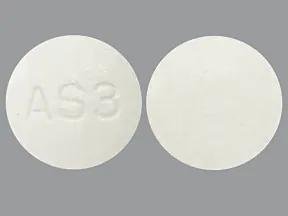Sodium bicarbonate Disease Interactions
There are 2 disease interactions with sodium bicarbonate.
Alkalinizing agents (applies to sodium bicarbonate) sodium/water balance
Major Potential Hazard, High plausibility. Applicable conditions: Congestive Heart Failure, Fluid Retention, Hypernatremia
Alkalinizing agents containing sodium can induce sodium and water retention and result in hypernatremia, hypokalemia, hyperosmolality, edema and aggravation of congestive heart failure. Therapy with sodium- containing alkalinizing agents should not be used in patients with hypernatremia or fluid retention. Clinical monitoring of acid/base balance and electrolytes prior to, during, a following completion of therapy with alkalinizing agents is recommended.
Alkalinizing agents (applies to sodium bicarbonate) acid/base balance
Moderate Potential Hazard, High plausibility. Applicable conditions: Renal Dysfunction, Alkalosis
Alkalinizing agents act as proton acceptors and/or dissociate to provide bicarbonate ions. Elimination of bicarbonate is decreased in patients with renal impairment and can result in metabolic alkalosis. Symptoms of metabolic alkalosis include hyperirritability or tetany, arrhythmia, and/or seizures (altered pH = altered calcium), or lactic acidosis due to impaired oxygen release. Therapy with alkalinizing agents should be administered with extreme caution in patients with compromised renal function. Clinical monitoring of renal function, acid/base balance and electrolytes is recommended.
Switch to professional interaction data
Sodium bicarbonate drug interactions
There are 166 drug interactions with sodium bicarbonate.
More about sodium bicarbonate
- sodium bicarbonate consumer information
- Check interactions
- Compare alternatives
- Pricing & coupons
- Reviews (3)
- Drug images
- Latest FDA alerts (7)
- Side effects
- Dosage information
- During pregnancy
- Drug class: antacids
- En español
Related treatment guides
Drug Interaction Classification
| Highly clinically significant. Avoid combinations; the risk of the interaction outweighs the benefit. | |
| Moderately clinically significant. Usually avoid combinations; use it only under special circumstances. | |
| Minimally clinically significant. Minimize risk; assess risk and consider an alternative drug, take steps to circumvent the interaction risk and/or institute a monitoring plan. | |
| No interaction information available. |
See also:
Further information
Always consult your healthcare provider to ensure the information displayed on this page applies to your personal circumstances.


